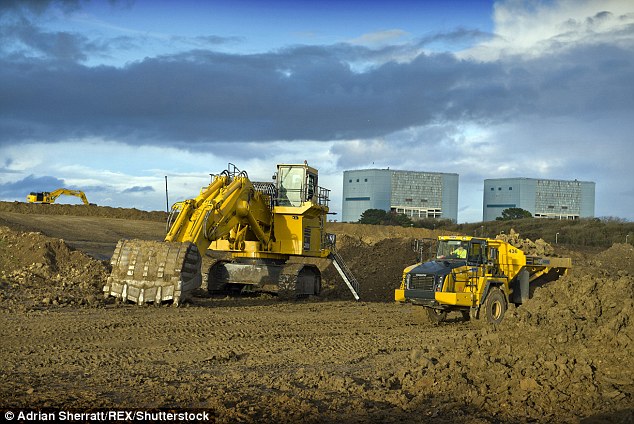-
Tips for becoming a good boxer - November 6, 2020
-
7 expert tips for making your hens night a memorable one - November 6, 2020
-
5 reasons to host your Christmas party on a cruise boat - November 6, 2020
-
What to do when you’re charged with a crime - November 6, 2020
-
Should you get one or multiple dogs? Here’s all you need to know - November 3, 2020
-
A Guide: How to Build Your Very Own Magic Mirror - February 14, 2019
-
Our Top Inspirational Baseball Stars - November 24, 2018
-
Five Tech Tools That Will Help You Turn Your Blog into a Business - November 24, 2018
-
How to Indulge on Vacation without Expanding Your Waist - November 9, 2018
-
5 Strategies for Businesses to Appeal to Today’s Increasingly Mobile-Crazed Customers - November 9, 2018
China ‘warning’ over Hinkley Point delay claims
“China can wait for a rational British government to make responsible decisions, but cannot tolerate any unwanted accusation against its honest and benign willingness for win-win co-operation”.
Advertisement
It has been suggested Prime Minister Theresa May had national security concerns about China’s role.
High-profile British Treasury Minister Jim O’Neill, a former Goldman Sachs chief economist, could quit his post over Prime Minister Theresa May’s new approach to Chinese investment, the Financial Times reported, citing a friend of O’Neill. The court decision is expected on September 22.
The state-controlled utility EDF, which itself had to come through a bruising boardroom battle on Thursdayin order to secure backing for the project, said it had not been given any advance warning of the review but was ready to start work.
Tian Dongdong, a writer with China’s official Xinhua news agency, said in a commentary that the delay “adds uncertainties to the “Golden Era” of China-UK ties”.
In its official Sina Weibo account, CGN responded to the news: “We understand and respect that in view of the importance of Hinkley Point C to the UK’s future energy security, the new government needs time to know about the project., CGN ready to continue pushing forward the project, along with the strategic partner EDF, to provide the United Kingdom with safe, reliable and sustainable energy supply”.
But after winning Britain’s top job in the political turmoil following the June 23 Brexit vote, May’s decision to review the project indicates a much more cautious view of Chinese investment and a willingness to take a tough line with European Union allies such as French president Francois Hollande.
Prime Minister Theresa May raised objections to the Hinkley Point nuclear deal during the coalition government, Lib Dem ex-business secretary Sir Vince Cable has claimed.
Similar projects now under construction in France and Finland are years behind schedule and face billions of dollars in cost overruns.
May has since been keen to state that Britain remains open for business.
The proposed “special share” in the consortium would have enabled the government to intervene on certain decisions to protect the national interest.
Timothy went further telling the Telegraph (UK) that the Chinese could “build weaknesses into computer systems which would allow them to shut down Britain’s energy production at will”.
The project is expected to offer thousands of jobs for local people while bridging the electricity gap left by the closure of all coal-fired plants in Britain as of 2025, with 7 percent of electricity supply guaranteed nationwide.
A tractor mows a field on the site where EDF Energy’s Hinkley Point C nuclear power station will be constructed in Bridgwater, southwest England October 24, 2013.
Although EDF and CGN are responsible for the £18 billion (S$32 billion) cost, Britain has committed to pay a minimum price for the power generated by the plant for 35 years.
The deal was supposed to pave the way for CGN to lead another project in Britain at Bradwell in which Chinese nuclear technology would be used.
Fresh concerns have been raised about the prospect of a new nuclear power station on the Essex coastline as the government postponed a decision on a plant at Hinkley Point.
Advertisement
She asserted that it was natural for the incoming government to review plans set by their predecessor in detail.





























